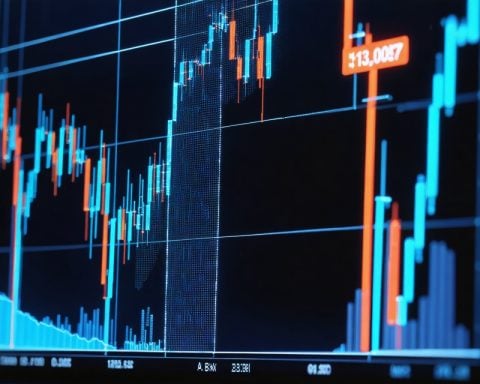Nokia Corporation has made headlines with its latest stock repurchase initiative. On January 24, 2025, the telecommunications giant successfully acquired a total of 872,093 of its own shares. This move comes amidst a broader strategy to stabilize stock value following the recent issuance of new shares related to the Infinera Corporation acquisition.
The shares were purchased on the Helsinki Stock Exchange at a weighted average price of €4.40 each, resulting in a total investment of approximately €3.8 million. Following these transactions, Nokia now holds an impressive 231,670,526 treasury shares in its portfolio.
This stock buyback program, which officially commenced on November 25, 2024, aims to repurchase 150 million shares with a maximum budget of €900 million, as sanctioned by the shareholders during the Annual General Meeting on April 3, 2024. The initiative is designed to counterbalance the dilution effects associated with new share distributions to Infinera shareholders and incentive plans.
Nokia is committed to enhancing shareholder value while maintaining a robust and dynamic market presence. Aiming for completion of this buyback by the end of 2025, the plans are in compliance with EU Market Abuse Regulation, ensuring transparency and governance in corporate actions.
This strategic approach positions Nokia as a proactive player in the tech industry, dedicated to fostering sustainable growth and innovation for its stakeholders.
Broader Implications of Nokia’s Stock Repurchase Initiative
Nokia Corporation’s recent stock repurchase program reflects not only a tactical corporate maneuver but also illuminates broader trends within the telecommunications sector. In an era where companies must deftly navigate market volatility, such strategic buybacks can serve as a vital tool in stabilizing stock value and boosting investor confidence. This is particularly critical in times of economic uncertainty, where companies often face pressure not only from shareholders but from global market dynamics.
Moreover, the successful execution of this repurchase initiative has significant implications for shareholder culture. As companies increasingly prioritize shareholder value, the narrative surrounding corporate responsibility is evolving. Investors are becoming more discerning, often expecting not just returns, but also a commitment to ethical governance and sustainable practices. Nokia’s adherence to EU regulations during their buyback assures stakeholders of their commitment to financial transparency and governance.
On an environmental front, as technology companies like Nokia expand their operations, their impact on sustainability becomes crucial. Future buyback strategies could enhance funding available for sustainable technologies or green initiatives, aligning financial maneuvers with environmental responsibilities. The telecommunication sector is undergoing a transformative phase with the rise of 5G technology and the demand for greener solutions, heightening the significance of corporate strategies that promote long-term growth while addressing climate challenges.
In sum, Nokia’s stock repurchase strategy transcends immediate financial concerns; it highlights the interconnectedness of corporate stability, shareholder expectations, and environmental stewardship. As global economies adjust to new realities, such initiatives may well define the future landscape of corporate governance in the tech industry.
Nokia’s Strategic Stock Buyback: What Investors Need to Know
Understanding Nokia’s Stock Buyback Initiative
Nokia Corporation has recently embarked on an ambitious stock repurchase program, a strategic maneuver aimed at stabilizing its stock value amidst a backdrop of strategic acquisitions and market fluctuations. This move is particularly noteworthy following the issuance of new shares related to the acquisition of Infinera Corporation.
Overview of the Stock Repurchase
On January 24, 2025, Nokia successfully acquired 872,093 of its own shares on the Helsinki Stock Exchange, paying a weighted average price of €4.40 per share. The total investment was approximately €3.8 million, which increases the company’s treasury shares to an impressive 231,670,526.
Details of the Buyback Program
Initiated on November 25, 2024, Nokia’s stock buyback program targets a total of 150 million shares with a maximum budget of €900 million, a strategy endorsed by shareholders during the Annual General Meeting on April 3, 2024. This initiative is particularly critical as it serves to mitigate the dilution effects experienced by existing shareholders due to the new share distributions linked to the Infinera acquisition and other incentive plans.
The Rationale Behind the Buyback
1. Enhancing Shareholder Value: By repurchasing shares, Nokia aims to increase earnings per share and return value to shareholders, a crucial factor in today’s competitive telecommunications market.
2. Stabilizing Shares Post-Acquisition: Following major acquisitions, share valuations can fluctuate. The buyback program is set to provide a level of stability that can attract more investors.
3. Compliance and Governance: Nokia ensures that its buyback efforts comply with the EU Market Abuse Regulation, emphasizing transparency in its corporate actions.
Market Trends and Innovations
Nokia’s proactive strategies come at a time of significant market shifts in the telecommunications landscape, driven by innovations in network technology and increasing consumer demand for enhanced connectivity solutions. This buyback program is positioned as part of a broader approach to ensure sustainable growth amidst rapid industry transformations.
Predictions for Nokia’s Future Strategies
As Nokia continues with its buyback program, industry analysts predict that the company will further enhance its market position through strategic partnerships and innovations in next-generation networking technologies. The ongoing focus on shareholder engagement and initiatives to boost stock prices may also play a vital role in shaping investor confidence moving forward.
Pros and Cons of Nokia’s Buyback Program
Pros:
– Improved Shareholder ROI: Share repurchase programs often lead to increased stock prices and dividends.
– Market Confidence: Strong buyback signals can instill investor confidence in a company’s financial health.
– Flexibility for Future Investments: Reducing the number of shares in circulation can provide Nokia with more maneuverability for future acquisitions or investment in R&D.
Cons:
– Market Risk: If the stock does not perform as expected post-buyback, the initiative may fail to yield desired results.
– Opportunity Cost: Funds allocated to stock buybacks could potentially be used for business expansion or technological advancements.
– Short-Term Focus: Some critics argue that buybacks prioritize short-term stock performance over long-term strategic growth.
Final Thoughts
Nokia’s stock repurchase program represents a calculated approach to managing market dynamics and enhancing shareholder value. This strategy not only demonstrates Nokia’s commitment to its shareholders but also underscores its intent to remain a formidable player in the technology sector. For more details on Nokia’s strategic initiatives, visit their official site at Nokia.
As the completion of this buyback program aligns with wider trends in the industry, it will be interesting to observe how it influences Nokia’s future growth trajectory and competitive positioning.





















